What do CA Senate District 7 candidates say about crime?
Some have a lot to say about it. Others not so much. See how the candidates seeking Nancy Skinner's seat compare on public safety.

On Monday night, the League of Women Voters chapter for Berkeley, Albany and Emeryville held a candidate forum focused on California Senate District 7.
Candidates Jesse Arreguín, Jovanka Beckles, Dan Kalb, Kathryn Lybarger and Sandré Swanson took part in the event, while Jeanne Solnordal (who has no website) declined to participate or provide a written statement, according to the LWV.
Below you'll find each candidate's introductory remarks, their public safety platforms, quick-hit responses on a proposed constitutional amendment to restore voting rights in prison and closing statements.
Candidates also tackled other issues during the program. We've focused on crime and safety because that's what we do at The Berkeley Scanner.
Once the full video is posted online, we'll add it to the story.
Responses below appear in chronological order.
Don't miss two more LWV candidate forums coming up this week in advance of the March 5 primary: Congressional District 12 (Barbara Lee's seat) comes Wednesday and Alameda County Board of Supervisors District 5 (Keith Carson's seat) comes Thursday.
See each candidate's opening statement below or use the links to jump straight to the crime and safety question.
- Kathryn Lybarger: "Community-driven, community-based approaches"
- Dan Kalb: Reduce gun violence, add rehabilitation and reentry services
- Jovanka Beckles: Corporate-free candidates, Ban the Box, community resources
- Sandré Swanson: "Oakland doesn't have enough officers"
- Jesse Arreguín: "Prevention, deterrence and accountability"
Introductory remarks
Jovanka Beckles: "We need solidarity in this race and class struggle"
I am a former Richmond City Council member, two-term AC Transit director. I'm a Black, Latina, gay, immigrant woman. I'm a labor and community activist, and a rank-and-file, recently-retired Teamster, working as a mental health professional.
The many policies that I wrote in the past received national attention for their boldness and life-changing impacts. These include "banning the box," passing the first rent control in over 30 years, raising the minimum wage to the highest in California, taxing Chevron and significantly reducing crime.
Voters are excited when they see a working-class person who looks like them. Only one of 40 state senators right now are Black. Representation matters. Our democracy, our freedom and civil rights are under attack. We need solidarity in this race and class struggle, but we win when we come together.
I'm connected to the community because of my work and activism for the last 23 years. Join me in winning in this people-over-profit movement.
Jesse Arreguin: "Overcame the odds to achieve the California dream"
I am running for state Senate because the East Bay needs a proven progressive problem-solver who will fight for more housing, safe neighborhoods, universal healthcare and better schools.
I'm the current mayor of Berkeley and vice president of the Association of Bay Area Governments. As a son of farmworkers, I overcame the odds to achieve the California dream, inspiring me to open the door for others.
As mayor of Berkeley, we focus on public safety: hiring more police officers, investing in violence prevention, banning ghost guns, increasing police oversight and shifting responses to mental health calls to train social workers.
We reduce homelessness through bold, compassionate action. We're leading the East Bay on housing affordability, building more housing than we've seen in decades, protecting renters and developing a regional housing plan for 440,000 new homes.
I fought for equal pay for women and made Berkeley a sanctuary city for women's reproductive health and gender-affirming care.
I helped raise the minimum wage, cut red tape for small businesses, fought hate crimes and I'm leading the fight to save Alta Bates Hospital. I'd be honored to be your next state senator.
Kathryn Lybarger: Union work "keeps me grounded in the practical"
My wife and I moved to the East Bay 23 years ago to start a family. We have two kids who are now grown. I'm a gardener by profession.
I now work full-time leading a union of 33,000 people, mostly women, people of color who feed students, clean hospital rooms, empty bedpans, take X-rays, worry about paying rent and what's for supper. This keeps me grounded in the practical.
In the face of our affordable housing crisis, I'm working right now to expand first-time homeownership to low-wage workers at University of California.
I'm also working to raise wages so people can afford to live near where they work. This includes my current effort to place on the ballot a measure that would extend equal pay to all California women.
I lead a federation of over 2 million working people, and I have the support of nurses, teachers, farmworkers, groups like Equality California, Environmental Voters and Fund Her and several local and state level electeds.
Dan Kalb: "I get the job done and I pay attention to detail"
I'm in my third term as an Oakland City Council member with a strong record of accomplishments on climate change, affordable housing, public education, our libraries, gun violence prevention and so much more.
Firstly, my entire professional career has been that of engaging as a public interest, social justice and environmental advocate.
I've been a strong policy reformer for over 30 years, including 10 years commuting to Sacramento, crafting state legislation, building coalitions and engaging in the entire soup-to-nuts process on complex policy.
Being a state legislator is not a high-profile position, and being an effective state legislator is not about merely talking the talk. The real work is the intricate — often behind-the-scenes, tedious — work on complex policy matters. And that's the kind of determined work that I'm very good at.
If you look at my work on the Oakland City Council and my work previously with the Union of Concerned Scientists and other non-profits, you'll know that I get the job done and I pay attention to detail.
In Sacramento, I will be a leader on affordable housing, climate justice issues, reducing gun violence and overall public safety.
Sandre Swanson: Running to stop "our unacceptable crime wave"
I'm a former member of the State Assembly and former chair of the Assembly Labor Committee with a 100% voting record for working families.
I'm running in this race to stop our unacceptable crime wave that is hitting our community and destroying our neighborhoods and frightening our people.
I'm running to end our unsafe homeless encampments and bring humanitarian solutions to the unhoused, and I'm running to try to make our education system No. 1 in the nation, making sure that we have full-service schools, safe learning environments for our children and that we have adequate compensation for our teachers that are doing a great job.
I'm a former chief of staff for Congresswoman Barbara Lee, a former district director for Congressman Ron Dellums, and I'm encouraging all of you to participate in this election.
Top 3 priorities for improving public safety
One of the first questions on the list Monday night was how each candidate in the California Senate District 7 race plans to tackle crime and safety, with a focus on their top three priorities.
Kathryn Lybarger: "Community-driven, community-based approaches"
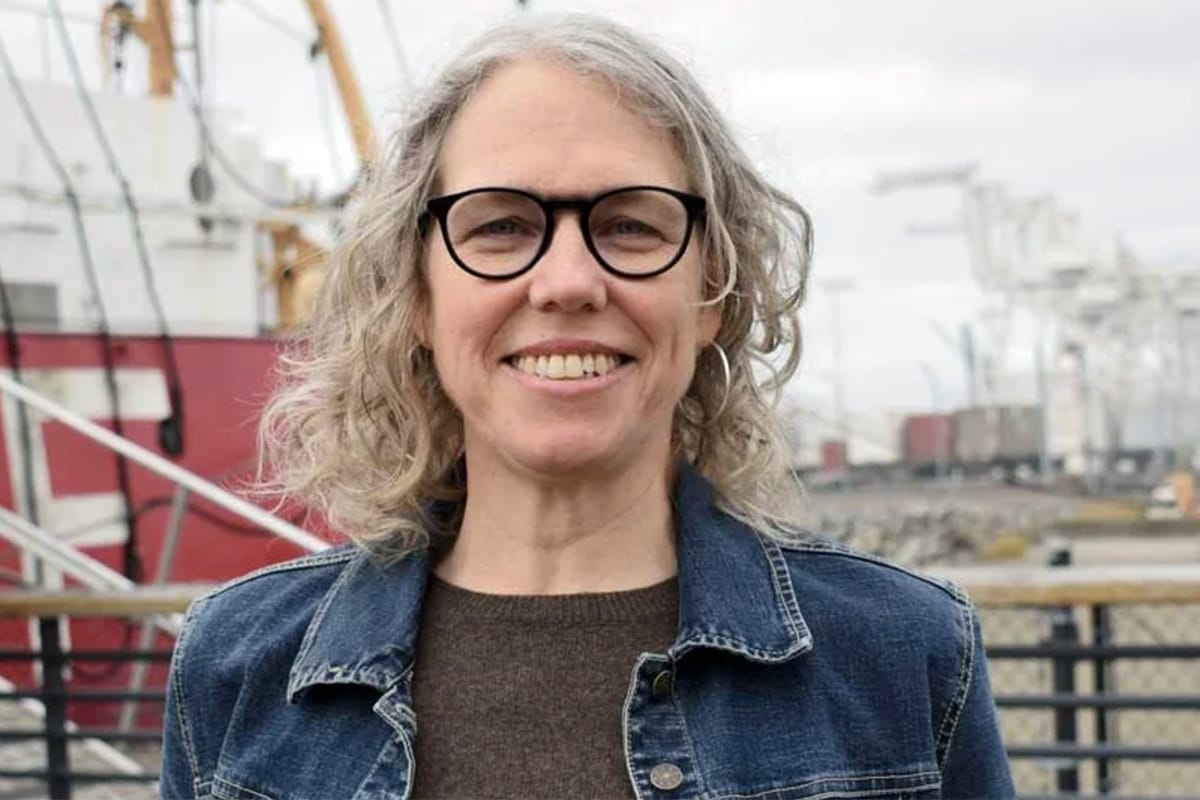
So everybody deserves to be safe, no matter who you are, where you live. And I think that we probably all agree that what we've gotta do is address the root causes of crime, right? Housing, jobs, poverty.
Democrats have been talking about this for decades. It's not wrong. Have we done enough about it? No, we haven't.
I think that, in the immediate, what we need to do is staff up all the people who make us safer. That includes healthcare workers, teachers, 911 dispatchers, social workers, behavioral health workers.
These are folks who actually make the job the police have to do a lot better. Police do an incredibly dangerous job and we have to staff them up as well as needed.
Primarily, we need to invest in community-driven, community-based approaches to public safety and not just talk about it. We need to invest in the Ceasefire violence prevention program.
And then finally, I would say that there's no law that is sacred and can't be revisited, is untouchable.
So any laws that we've got around public safety that need to be revisited: Are they effective? We need to look at the data for that and be willing to make changes as needed.
But it needs to be well-informed and data-driven with an eye toward justice and equity so that we don't go backwards on the great work we are doing — not enough, but that we need to do more of — to make sure that some communities don't end up in prison more than others.
Dan Kalb: Reduce gun violence, add rehabilitation and reentry services
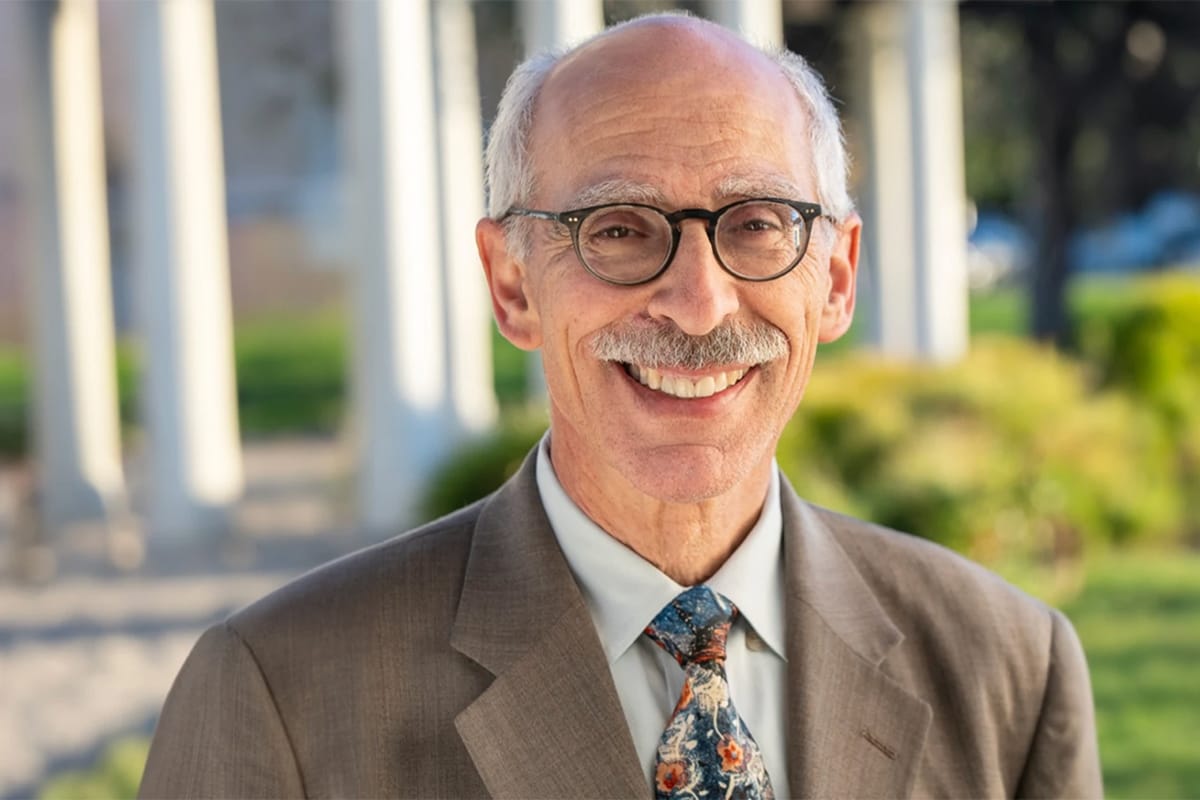
Certainly, there are more than three things, but let me just rattle off a few things that we have to do at the state level to help our local jurisdictions.
One, we need to make sure the state does everything it can to reduce gun violence. That's a multifaceted challenge overall.
I've been a leader when it comes to passing laws at the local level. I authored laws to ban ghost guns and the parts that make them. And require safe storage of guns in homes, but there's so much more we need to do.
So getting guns off the street, getting illegal guns off the street, we have to stand up to the NRA and do the best we can at the state level to help our local jurisdictions.
The second part: rehabilitation in our state prisons.
I toured San Quentin Prison about seven, eight years ago, and I met with the inmates, met with the NGOs running rehabilitation programs, met with the warden. And, if we want to be successful at reducing recidivism, we have to have a robust rehabilitation program, not just at one state prison like we have at San Quentin, but at all our state prisons.
And right now, we fall short. We have to increase those investments in a big way. That will reduce recidivism. The data shows that.
And three, we need to fund and invest heavily in re-entry services at the county and local level.
If you can't do that — after people get out of prison and come back to our communities or where they're on probation — if you can't invest in reentry services, we're not going to be able to reduce recidivism.
Most people who commit crimes are people who committed crimes before, especially serious crimes. We need rehabilitation, reentry services that will be helping people who need help and will be reducing crime for all of us.
Jovanka Beckles: Corporate-free candidates, Ban the Box, community resources
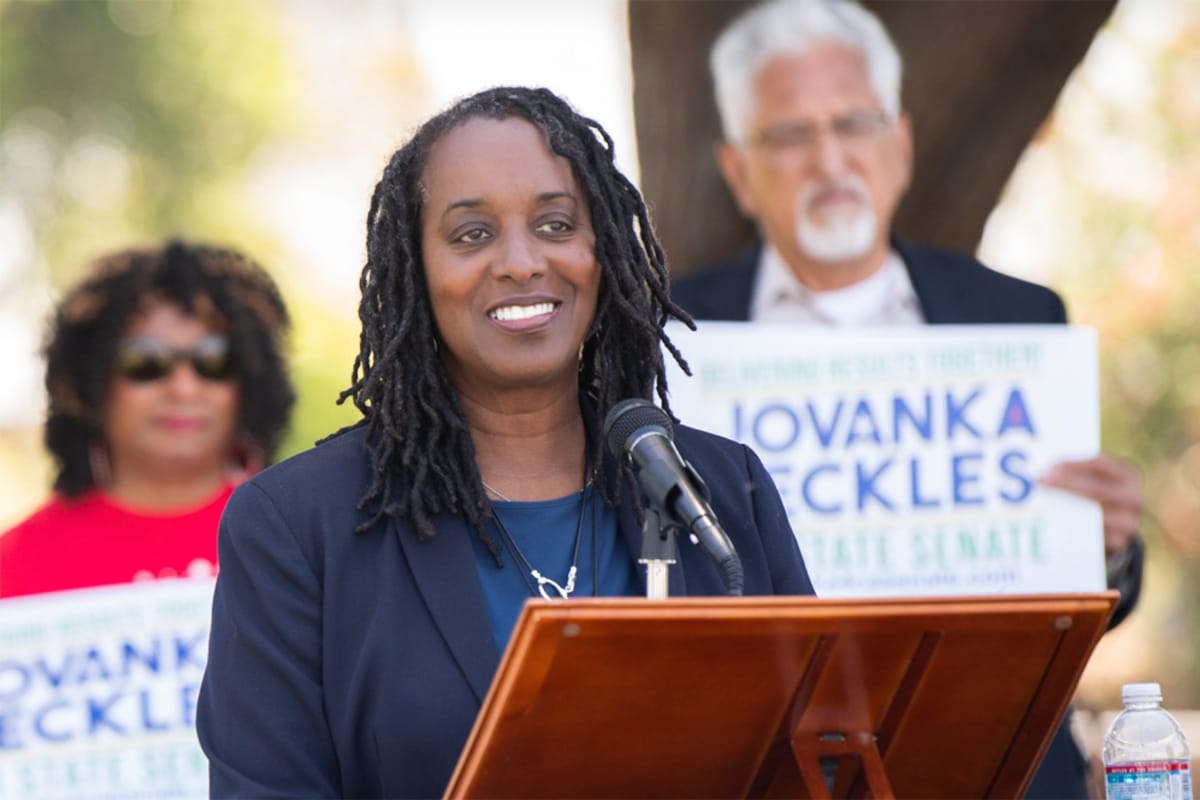
I'm really, really proud of the fact that Richmond is no longer on the country's most crime, you know, highest-crime cities.
And that happened during my tenure on the Richmond City Council. Because, in Richmond, let's start first and foremost by saying — we started electing corporate-free candidates. That was one.
The second thing we did, and I'm really proud of, is we addressed the root causes of crime. And I'm really proud of the legislation that I brought forward, called "Ban the Box," which helped reduce recidivism.
[Editor's Note: "Ban the Box" laws prohibit employers from asking about criminal convictions. They may also include exceptions, as Richmond's does.]
When people can't get work, they're going to resort to crime. And by passing that, being the first one in the state of California to bring forward a "Ban the Box" policy, really helped significantly to reduce recidivism by giving people a job.
And I'm also proud to say that, as a result of Richmond's leadership, the state of California now has a "Ban the Box" policy.
By addressing the root causes of crime, people need to be able to have the resources that they need in order to do well. And so a lot of those resources can be simple things: We need to fund communities to have more parks. We fixed the parks that we have in Richmond. We opened up libraries.
I was able to fund the Office of Neighborhood Safety that helped to reduce gun violence. We had Ceasefire walks. And so that's how you address violence, through addressing the root causes of it.
Sandre Swanson: "Oakland doesn't have enough officers"
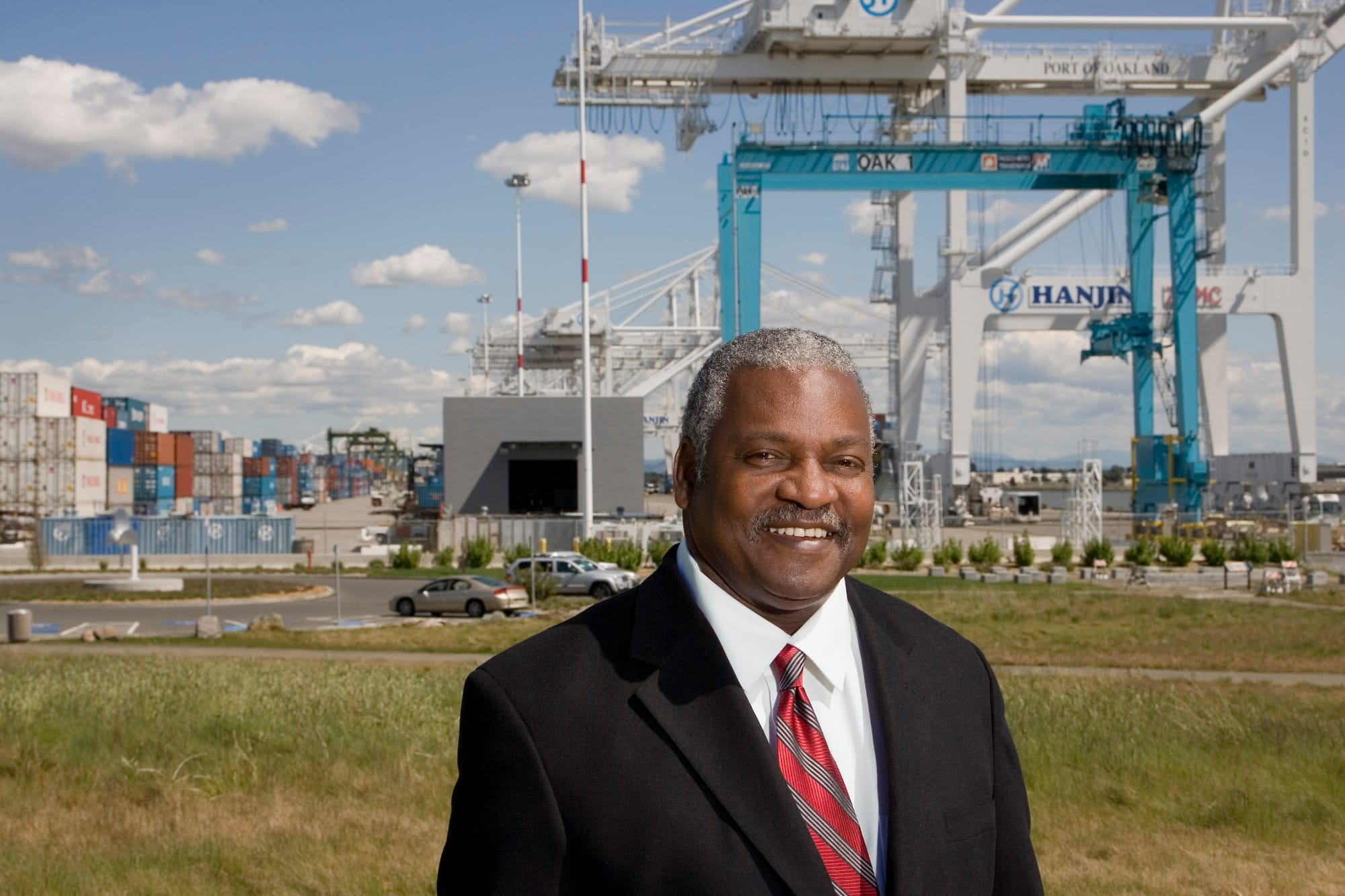
When I was in the Assembly, I led the legislation dealing with human trafficking.
I believe human trafficking is funding the underground economy of crime, and that's why I worked so hard to make sure that we were rescuing our young women, some as young as 12 years old, who have been victimized by this particular crime.
I developed a working relationship with law enforcement at the time. That's why my campaign is endorsed by all major law enforcement organizations in California.
And I am very interested in making sure that we address this question of crime —because it is unacceptable.
In Oakland, people are afraid to come out at night. We are losing businesses.
And I think we have to make sure that our police departments have the resources to be able to address this unacceptable crime. And they have to work in partnership with the community.
We need some unarmed peacekeepers also so that the response time of our law enforcement officers can be increased.
I think in Oakland, for instance, we're understaffed. I just think Oakland doesn't have enough officers to be able to have bike patrols, etc.
Jesse Arreguin: "Prevention, deterrence and accountability"
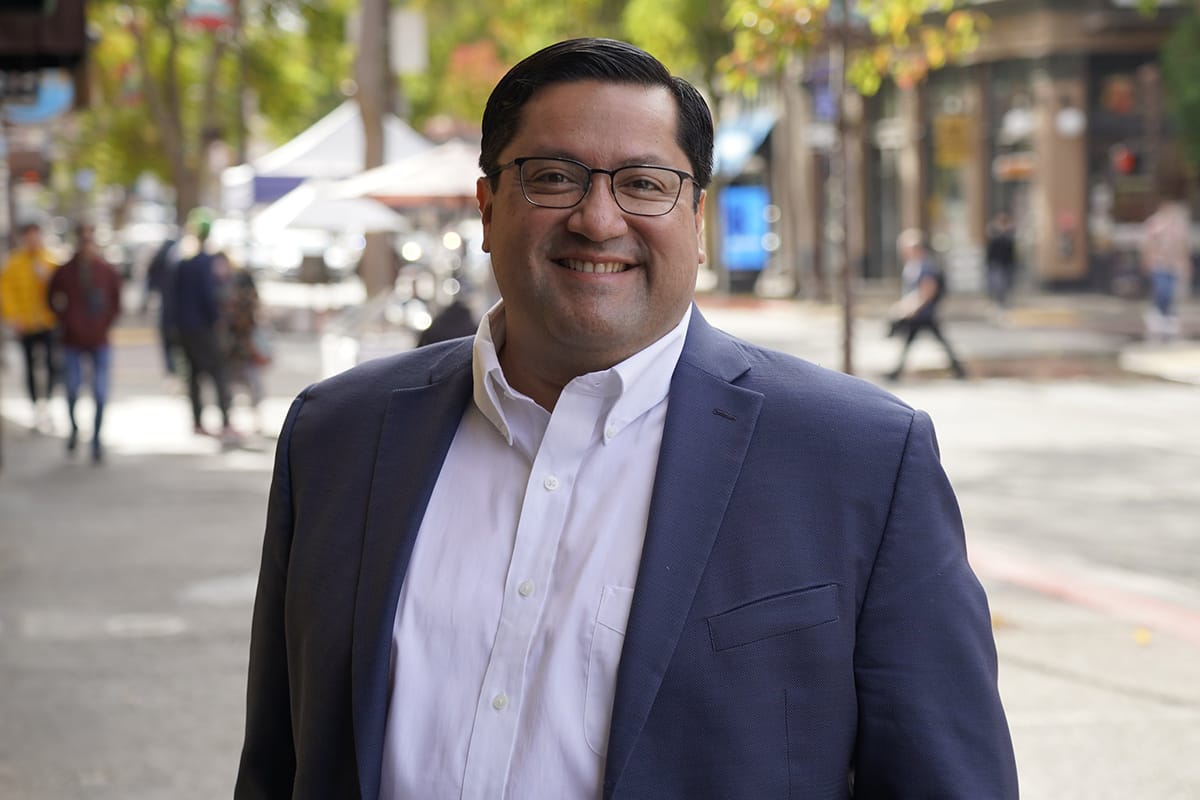
The East Bay is facing a public safety crisis and, while we do need to focus on long-term solutions to reduce crime and create healthier, safer neighborhoods, let's face it: People are afraid to leave their homes.
Businesses are closing, people are being victimized by crime. We have to address this crisis head-on with urgency and pragmatism.
We also need to put forward solutions that adhere to our progressive values. So at my website, jesse.vote, we've released a public safety plan that's focusing on prevention, deterrence and accountability.
In terms of prevention, we need to hire more community police officers. We need to invest in violence prevention programs that address the root cause of crime, like Ceasefire.
I brought together mayors, supervisors, law enforcement officials to create a new regional collaborative, the East Bay Public Safety Corridor. We need more regional collaboration to address the public safety crisis.
We need to invest in programs that provide real alternatives for our young people to make sure that they don't commit crime. We need to expand mental health services.
We need to look at how we can use technology and improve our 911 response system to make sure that we can improve our response capability.
And also to make sure that we can use technology to assist in crime prevention in criminal investigation.
I want to provide tax incentives to help small businesses upgrade their security systems and address damage caused by break-ins.
We absolutely need to fight for stronger gun laws and defend those laws from the right wing trying to overturn California's strong gun control laws.
And we also need to focus on accountability for law enforcement too. That's a critical part of it as well.

LWV: What is your position on ACA 4, which would allow Californian voters to decide whether the nearly 100,000 disenfranchised, incarcerated people completing their sentences in California prisons have the right to vote?
Read ACLU California's take on ACA 4, authored by Assemblymember Isaac Bryan (D-Los Angeles).
Jovanka Beckles: Absolutely. Again, these are many of the things that I'm already leading on. Ninety percent of people who are incarcerated are going to be returning to their communities. And many of them of course want to succeed. So the answer is yes, absolutely 100%.
Dan Kalb: Yes, I do support that.… This is a smart thing to do. This will help with rehabilitation, create encouragement, and get people used to voting because they're going to come out eventually as they have a right to do. Let's support that. Encourage democratic voting.
Kathryn Lybarger: Totally support it. It encourages, actually, investment back into the community of people who are re-entering. Absolutely. Excited about it.
Sandré Swanson: Yes, we absolutely need this, but we need reentry programs that have substance to them. We have to lower our recidivism rate. That's how we help to address crime, by making sure that people that come back into our community have hope and have resources to be able to survive.
Jesse Arreguín: Yes, I support this. In fact, the Berkeley City Council just passed a resolution in support of the law. But I also support Assemblymember Bryan's efforts to end forced servitude in the prison system. We need to also work to invest in rehabilitation so people can successfully re-enter.
Closing comments on crime and safety
During their closing statements, each candidate got 2 minutes to sum up their overall positions and priorities.
We've included everything they said about crime and safety.
If they did not talk about crime, we pulled in other highlights from their remarks.
NB: In the interest of fairness, TBS has published about 600 words total from each candidate. To get to that number, we condensed the closing comments, first by identifying all remarks about crime and safety and then by adding other platform highlights to ensure everyone had equal space overall.
All candidate remarks prior to the closing comments section are largely verbatim aside from trivial edits for clarity.
Jesse Arreguín: As your next state senator, I'll address public safety comprehensively and push to hire more officers who live in the communities that they serve.
I'll work to build housing for all, address homelessness through mental health and housing, invest in public education, champion universal healthcare, defend reproductive rights and combat climate change.
A growing coalition of local leaders — business, labor — are supporting me because of my proven track record of leadership on some of the most critical issues facing the East Bay: building housing, addressing homelessness comprehensively, addressing our public safety crisis.
Jovanka Beckles: Most of the answers that I was able to give: These are things I'm already doing. So you can trust that I'm going to continue to do it.
I am the only corporate-free candidate in this race. That means I'll be working for the community and not corporations. I'm the most viable here. I've been in local office for 18 years. I have the strongest name recognition. You know, folks trust me.
I saved jobs for workers, I supported renters, banned the box, raised the minimum wage to the highest in California, held corporate polluters accountable, kept children out of chains in juvenile hall.
I did all this while working full-times as a mental health professional. We need more Black healthcare professionals in positions of power. I ask that you join this winning movement to pick people over profit.
I ask for your endorsement because it's time. We deserve a seat at the table. Black and brown people deserve it, and I ask for your support in making sure that this happens.
Dan Kalb: People who have seen my work, seen my record, they know that I am and have been and will be a strong leader when it comes to affordable housing, protections for renters, public safety and gun violence prevention, police accountability.
I'm proud of the work I've done. I will work very hard and people know that I get involved in details because details matter.
Kathryn Lybarger: I haven't held elected office before. That puts me in the good company of two East Bay women who currently confidently represent us in the state legislature.
I'm the only candidate in this race who has not only gone to a strike line but led one of the largest strikes in California.
I know what it's like to have a man trust me, that he wouldn't lose healthcare for his sick son if he goes out on strike. It's why I got a law passed to make it illegal for a public employer to threaten the loss of healthcare to a striking worker.
I know what it's like to get a call from a janitor asking how to cash out his pension so he can cover the first and last month's rent. And that's not why I led a strike to preserve people's pensions, but it is why I'm fighting so hard now to have the state's third-largest employer invest in affordable housing.
I'm running to support the people who help people … who it's been my honor to work for and alongside for quality affordable housing, healthcare, education and a livable planet.
Sandré Swanson: I am running in this race to address our crime. Our crime is out of control.
People are afraid in the largest city in this district to park their cars on the street, to go to restaurants in the evening. Businesses are closing. We are losing this battle against crime.
I understand that a member of the legislature can't do everything. But what I'm promising you is that I will address this question of crime.
We have to make sure that our public safety organizations are well-funded. That they have the resources to be able to combat this crime, which is organized. We are facing organized crime. One day in Oakland, 80 cars were stolen. Eighty cars. That's just not two guys from the neighborhood doing that.
I was watching television. I saw a woman being dragged down the street because she wouldn't let go of her purse. This is unacceptable. And so I want to get into office to do something about it.
I was born in the city of Oakland. We're losing our city. And it's unacceptable to me. It's unacceptable for people to feel that they are prisoners in their own community, in their own home. This cannot continue.
And so someone needs to be upset about it, and I'm upset about it. And I think that we need to do all we can to make our people feel safe.



